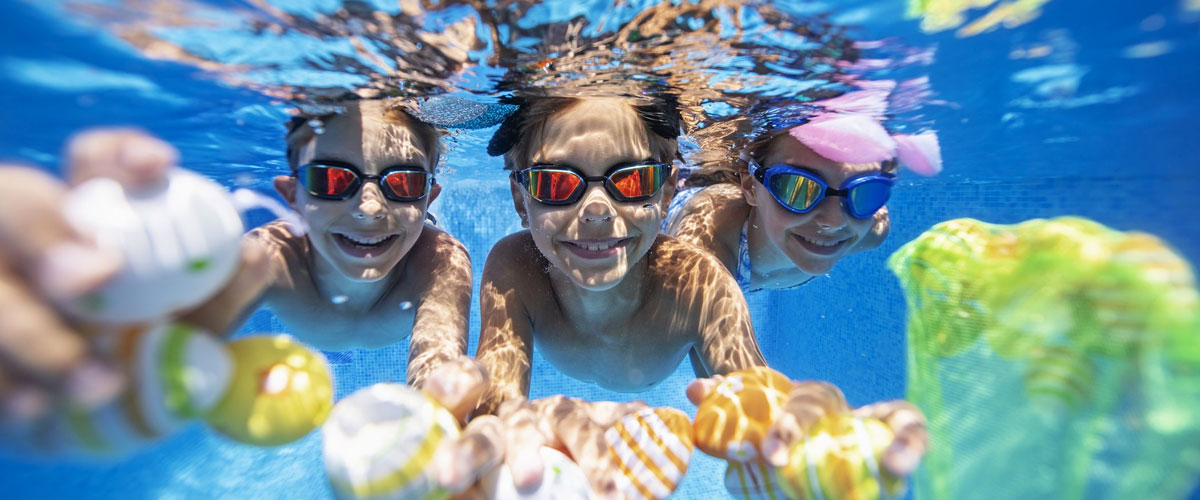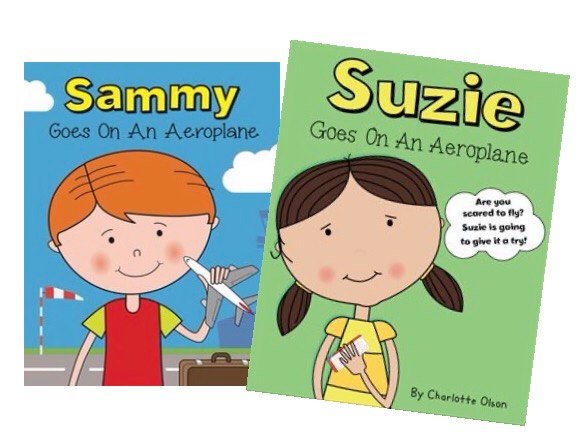Cookie Policy for REACH North west
This is the Cookie Policy for REACH North west, accessible from https://reachnorthwest.org
What Are Cookies
As is common practice with almost all professional websites this site uses cookies, which are tiny files that are downloaded to your computer, to improve your experience. This page describes what information they gather, how we use it and why we sometimes need to store these cookies. We will also share how you can prevent these cookies from being stored however this may downgrade or 'break' certain elements of the sites functionality.
For more general information on cookies, please read "What Are Cookies".
How We Use Cookies
We use cookies for a variety of reasons detailed below. Unfortunately in most cases there are no industry standard options for disabling cookies without completely disabling the functionality and features they add to this site. It is recommended that you leave on all cookies if you are not sure whether you need them or not in case they are used to provide a service that you use.
Disabling Cookies
You can prevent the setting of cookies by adjusting the settings on your browser (see your browser Help for how to do this). Be aware that disabling cookies will affect the functionality of this and many other websites that you visit. Disabling cookies will usually result in also disabling certain functionality and features of the this site. Therefore it is recommended that you do not disable cookies.
The Cookies We Set
-
Account related cookies
If you create an account with us then we will use cookies for the management of the signup process and general administration. These cookies will usually be deleted when you log out however in some cases they may remain afterwards to remember your site preferences when logged out.
-
Login related cookies
We use cookies when you are logged in so that we can remember this fact. This prevents you from having to log in every single time you visit a new page. These cookies are typically removed or cleared when you log out to ensure that you can only access restricted features and areas when logged in.
-
Email newsletters related cookies
This site offers newsletter or email subscription services and cookies may be used to remember if you are already registered and whether to show certain notifications which might only be valid to subscribed/unsubscribed users.
-
Forms related cookies
When you submit data to through a form such as those found on contact pages or comment forms cookies may be set to remember your user details for future correspondence.
Third Party Cookies
In some special cases we also use cookies provided by trusted third parties. The following section details which third party cookies you might encounter through this site.
-
This site uses Google Analytics which is one of the most widespread and trusted analytics solution on the web for helping us to understand how you use the site and ways that we can improve your experience. These cookies may track things such as how long you spend on the site and the pages that you visit so we can continue to produce engaging content.
For more information on Google Analytics cookies, see the official Google Analytics page.
-
From time to time we test new features and make subtle changes to the way that the site is delivered. When we are still testing new features these cookies may be used to ensure that you receive a consistent experience whilst on the site whilst ensuring we understand which optimisations our users appreciate the most.
-
We also use social media buttons and/or plugins on this site that allow you to connect with your social network in various ways. For these to work the following social media sites including; Facebook, Twitter and Instagram, will set cookies through our site which may be used to enhance your profile on their site or contribute to the data they hold for various purposes outlined in their respective privacy policies.
More Information
Hopefully that has clarified things for you and as was previously mentioned if there is something that you aren't sure whether you need or not it's usually safer to leave cookies enabled in case it does interact with one of the features you use on our site.
However if you are still looking for more information then you can contact us through one of our preferred contact methods:
- Email: This email address is being protected from spambots. You need JavaScript enabled to view it.

Puberty/Hygiene
Sex education and puberty
Here are some ideas for talking to your child about puberty, sex, sexuality and relationships, as well as links to some useful resources. You can also read the Top Tips for sex education on the NAS website.
When to talk to your child about puberty, sex, sexuality and relationships
School classes do address puberty, sex, sexuality and relationships at an age-appropriate level. Find out what your child’s school will be teaching, and when. By working with the school, you will help to ensure consistency between school and home explanations and if your child is ready for the discussions school will be having. You might decide that these lessons are paced inappropriately for your child, you know best. Perhaps they assume too much prior knowledge, or don’t start at an early enough age or progress to fast. Children on the autism spectrum often need a longer period of time to adjust to and understand any changes in their lives and may need longer processing time.
How to talk to your child about puberty
Always answer honestly any questions your child has about their body. This will help your child to learn that puberty is not something to be embarrassed about and that they can trust you to give them the right information. If you are unsure of the right answer, it is better to say that you are unsure. Your child may be confused if your answer is not very clear leading them to interpret your answer to what they think it may mean and this can cause uncertainty.
Child tend to ask questions at an inappropriate times, so a standard response, which everyone in the family can use maybe a good idea, such as 'That's a good question. Let's chat about it once we get back home'). Do however remember to sit down and answer the question when you get home or your child may be reluctant to ask you questions in the future.
Your GP or practice nurse may be able to help, especially if your child will only be satisfied with an accurate, full and scientific answer. Involving the GP or practice nurse may help your child to feel comfortable talking to them about their bodies in the future, eg about sexual health or contraception.
Language
The language you use is important, saying that your son’s voice will “break” may be very worrying for an autistic child, who may take it literally. Instead you could say that your voice is changing and likely to become deeper. You could then refer to male family members voices and explain that men's voices are usually deeper than women's voices.
Private/public
While you are talking to your children about puberty and sex, you may also need to provide some guidelines about the difference between public and private:
- Who they can talk to about any concerns they have, eg mum, dad, the GP and school nurse
- Which rooms are private and which are public
- That they should only undress or masturbate in a private room (eg their bedroom)
- That people should always knock on a bedroom door before entering (you will need to make sure that everyone who visits your home is aware of this rule).
Physical changes
Explaining physical development
You could use visual supports to explain the basics of development, such as:
- Photos – you could show your child photos of themselves as a baby and toddler, and of yourself or other family members at different ages, to help your child to understand about when puberty happens in a person's lifeit happens to everyone.
- A diagram of a body outline is a good idea where you can label all of the body parts together, this will help you also find out what they know already about their body and the names they are aware of for different body parts, you can then also highlight how each part will change, and talk about what fluids come from each part eg. sweat, tears, urine, semen, menstrual blood, vaginal discharge etc Encourage your children to feel positive about these changes by talking about some of the advantages of being an adolescent and adult, eg you can shave like daddy, you can choose your own clothes or stay up later - whatever you think will appeal to your child.
Menstruation (periods)
Your young person may need reassurance that she will not bleed to death, that menstruation is a normal biological process,. Tell your daughter/family member/young person who to go to at school if she gets her period while there., speak to the school and arrange a dedicated person if that helps. Show them how to use sanitary products, pointing out any particular features which might help her to remember how to use them correctly, your daughter may like to be there when they are bought so she knows where to get them from as she grows up. You could put sanitary items in a particular drawer in your daughter’s bedroom/ bathroom so she knows they will always be there when she needs them. A calendar maybe a good idea to help your daughter understand when her period is due. You may want to talk about the feelings she may get before a period, any aches or pains before and during menstruation, this way she will understand these are normal and all women have them, some more than others and she can ask you for help if needed if medication is required for aches and pains.
Masturbation
Talking about masturbation with your child will help with any anxieties about what they are doing. Reassure them that masturbation is an absolutely normal activity. It is important that your child knows know how to clean themselves if necessary after masturbation. You could perhaps supply tissues/wet wipes or an appropriate towel. You may want your child to tell you if bedclothes need changing or let them know that they can put there bedding in the washer if they are able to do so. If your child would find this difficult, you could introduce a symbol or hand signal that they could use to let you know. Going through privacy with them is important too.
Personal hygiene
Address personal hygiene also need discussing as your child approaches puberty. Prepare your child for the need to wash more often, that they will start to smell dfferent and that’s ok it’s all part of growing up and maybe let them choose their washing materials and deodorants giving them some independence. You will need to explain how to do these things, as well as the social rules determining why we do them. A social story™ might be useful here. If your child already has an established routine or tick list for their morning schedule, washing themselves, changing their clothes or their bed sheets, you could perhaps adjust it to include the use of deodorants, showering every day, shaving etc.
Here’s an example of showering schedule
- I will wash my face, arms, stomach, feet and legs with soap and a face washer.
- I will wash under my armpits with soap.
- I will wash around my vagina/penis with soap.
- After the shower, I will dry my armpits with a towel. I will dry my around my vagina/penis with a towel.
- I will put deodorant under my armpits.
- I will get dressed into clean clothes.
Put the schedule up in the bathroom where your child will see it every morning.
Social Stories™
Here’s an example of a Social Story™ that can help your child understand some of the social rules behind personal hygiene, as well as hygiene skills:
- I will notice that I am sweating more.
- Sweating is when my body releases small amounts of fluid to make sure I am not too hot.
- I might notice this when it’s hot outside, when I am nervous or when I am playing sport.
- Most people don’t like the smell of sweat, so I need to wash myself every day.
- After my shower, I should use deodorant under my arms.
- This might feel strange. This is OK.
- Deodorant will help to stop my body smelling bad
Where do Social Stories™ come from? - Social Stories™ were developed in 1991 by Carol Gray, a teacher working with young children with autism spectrum disorder (ASD).
Video modelling
Video-modelling can help your child learn self-care skills too. You could video yourself putting on deodorant and watch the video with your child. If you record the video on your child’s smartphone or tablet, your child could watch the video and do the skills as she watches.
You will probably need to go over these strategies many times with your child. Try to be patient with your young person – and yourself, they may need more processing time, pick times to do the strategies when you are not tired too so not late evening if you have been busy throughout the day.
You might find it helps to share experiences and get support from other parents in similar situations.
Further information
Online resources
- Ambitious about Autism - Sex Education
- Autism Education Trust – The Den – Get the Facts
Videos exploring puberty, sex, contraception, masturbation and sexual hygiene - Science: human body and mind (BBC)
- Sex Education Forum information sheets
- A library of symbols and pictures in Word to explain sexual health (Tom Morr Accessibility By Design)
Books
Beyond Words Picture books that tell a story, or let the reader tell their own story. Some are available as ebooks. Titles include Loving each other safely, Keeping healthy down below, Jenny speaks out, Looking after my balls.
Sexuality and safety with Tom and Ellie


By Kate E. Reynolds, illustrated by Jonathon Powell. Six books exploring body development, sexuality, masturbation, and using public toilets safely.
FPA (formerly Family Planning Association) guides
Purchase guides aimed at people with learning disabilities on topics including puberty, masturbation, sexuality and contraception.
NAS library catalogue
To find the details of more books and articles.

Travel Resources
In this section we hope we have provided some useful information– if you think know of any tips or resources that would fit in this section that would help families and professionals then please do Contact us we would be happy to hear from you.
Preparation
Firstly let’s cover preparation, preparation is really important for any autistic person, they can find the changes difficult which could lead to anxiety, meltdowns or behaviours that may challenge.
So once your trip is booked do prepare them to help reduce any anxieties.
We suggest spending time with them looking at photographs in a brochure or on the holiday companies website, you could make up a visual book with all the photos in there so they can look when they want to and as often as they want to.. If you or your child is on the autism spectrum, travelling through an airport, it can be a really intimidating task. To make this a little less so, Manchester Airport have put together some very useful booklets for each of the terminals with advice when travelling for parents and activities to keep children entertained and interested in the whole process.
The Guides are downloadable and available below;
- Terminal 1
- Terminal 2
- Terminal 3
- The Airport lanyard scheme would be helpful too, you can find that information over in our Airport section.
If you are travelling with a younger child, try to address any worries they may have by reading a relaxation book together or using worry eater can help.
Contact your holiday provider/s and let them know of any special requirements needed by the autistic person you are travelling with, most companies have a section and team on hand to help. Many tourist attractions will allow a carer free entrance, and/or arrange special access to facilities, if you show them some evidence of the person’s disability, for example a letter showing that they receive Disability Living Allowance or Personal Independence Payments. So consider taking some documents with you in case they are needed.
Passports
New-born babies and children up to the age of 15 years have to have their own passports. From age 16 onwards they are eligible for the standard ten-year passport.
Read more about passport services if you are disabled.
Insurance
Always make sure that you have travel insurance that meets the requirement of the autistic person you are travelling with. You can search for travel insurance by using a comparison website. Cerebra also has information you may find useful on insurance.
Books

You can find these books in book stores or directly from Suziesbooks

This book can be found in most stores such as Waterstones or online shopping such as Amazon

This book can be found in most stores such as Waterstones or online shopping such as Amazon
Other Travel
Here you will find info on ‘other travel’ cruising, rail and any other information you may find useful,
Traveling can be challenging for children and adults with autism. The changes in routine, unpredictability, crowds, new noises and sights can all make the experience sometimes more difficult for people on the spectrum and their families, if you know of any useful travel information that may benefit other families please drop us a line via our Contact us form. We hope you find this area useful to make your travel much easier and less stressful.
UK Holidays
Spectrum Holidays

The UK specialists for fun, family holiday accommodation for families with dependants on the autism spectrum. Caravans, cottages, lodges bed and breakfast accommodation can be found via Spectrum Holidays
Cruising
Cruising can be a great way to see the world, now there are cruise lines that cater for families touched by Autism.
These cruise lines are classed as ‘Autism Friendly’ and have put extra things in place for those families that need it.
Take a look and do look at all the policies and things they offer for your family when choosing your next cruise!

Royal Caribbean is the first Autism-Friendly Cruise Line and has developed a comprehensive program with products and services specifically for children and families living with autism, Down syndrome, and other developmental disabilities.

Celebrity Cruises® offers a welcoming autism-friendly environment onboard its cruise ships. This includes sensory-friendly films and toys, dietary menu options, and overall autism-friendly training for Camp at Sea staff.
Celebrity cruises have a free Social story for your cruise.
The TSA Cares Transportation Security Administrationhas a help line, TSA Cares, to assist travellers with disabilities and medical conditions during the security process.
TSA recommends that passengers call 72 hours ahead of travel for information about what to expect during screening.
Trains
Travelling by train or ferry can be a great family adventure, so long as you plan ahead. Check things out so you’ll know what to expect, and read our tips about reducing stress for you all.
Many train stations and ferry ports will offer special assistance for disabled travellers. We advise that you contact the stations or port you are travelling from and to before your trip to explain that you are travelling with an autistic passenger and ask what support they offer.
If travelling through Europe, you might find it useful to read advice on passengers with special needs.
Top Tips
- Check accessibility along the whole journey and include any platform changes. If you need help, let all the stations know in advance.
- Prepare your child with books and pictures about what to expect.
- Pack toys, food and drink to use on the journey
- Find out where the toilets are along the way, and their accessibility.
- Have an emergency plan with contact numbers – remember your mobile might not work on the underground.
- See if you can get a train driver or staff member to chat to your child. It can reduce stress for your child and might help avert a meltdown.
- Avoid rush hour if at all possible.
Eurostar

If you prefer, you can stay in your car on Eurostar the whole way from boarding to when you drive off in France. Just display your Blue Badge and tell staff that this is what you want to do when you check in. Follow the overhead signs for disabled travellers and board at the front of the train. Seeing eye/disabled assistance dogs can travel on Eurostar.
Find up-to-date information on special needs travel here on Eurostar
National Rail

Here are a few useful links for when you’re travelling on National Rail.
Basic information for travellers with additional needs
Regional train operating companies with map
For specific journeys you might need to contact individual train companies to check for accessibility to and from the platform. Here is the National Rail link with a handy map.
You can get up to 50% off an anytime ticket depending on your child’s disability and need for a ‘companion’. The criteria are quite specific, so have a look at this link.
Disabled Person's Railcard
Disabled kids aged 5–16 may be eligible for a Disabled Person's Railcard. They pay the normal child's fare, but one adult can travel at a discounted rate of one third off the fare. The medical criteria are quite broad and include epilepsy and mobility Disability Living Allowance. There is some extra information about the railcard on the Directgov site.
Merseyrail

Merseyrail Trains are well designed for disabled access, with priority seating and with reserved spaces for standard-size wheelchairs and mobility scooters. Contact Customer Relations at least 1 hour in advance if you need help at a station. As long as they have at least an hour's notice, staff can be on hand to assist at any station. To book, call 0800 0277 347 (free phone number), Monday to Friday. At other times, call 0151 702 2704. Find out more information on Merseyrail.
Ferries
Brittany Ferries

Brittany Ferries very much hopes that all passengers enjoy a totally relaxing journey on board their ships and this is particularly so for a passenger with a disability or reduced mobility. With this in mind they need you to tell them the level of assistance you will require for your travel when you make your booking with Brittany Ferries.
At Brittany Ferries, they appreciate how difficult and intimidating travelling can be for a child on the autistic spectrum. Their travel booklet has been designed to familiarise you with their ports, ships and procedures before you travel.
Stena Line

Stena Line offers passengers with special needs assistance when on a ferry crossing to Holland.
The extensive ferry travel assistance features mean that all parts of Stena Line's ferries are accessible to both wheelchair and non-wheelchair users. And, if you require further assistance, you'll be able to arrange for your requirements at the port before embarking on your ferry to Holland.
Irish Ferries

Lending you a helping hand – Irish ferries say:
Whatever you need we will do our best to help make travel on our services as easy and comfortable as possible for passengers with reduced mobility and special needs.
In addition to mobility and sensory restrictions our disability facilities are available to passengers with mental health problems, specific learning difficulties and medical conditions which may have an impact on day-to-day activities. In order to assist we need be aware of your needs. So please let us know at least 2 days before you travel. FAQ
P&O Ferries

Making your journey easier – P&O Ferries say:
If you have any special requirements or mobility issues, we’ll do everything we can to make your journey as relaxing and comfortable as possible.
If you’re booking online, just tick the box on the passenger details page if you require special assistance.
If you need further assistance, you can also get in contact with us before you travel and we can make sure our staff know exactly what you need.
Some organisations, such as The Family Fund, maybe able to provide funding for get a ways see our Funding and Grants page.

Please consider making a donation to REACH North West. Every penny we receive helps us to help our children
Donating is one of the simplest ways of helping and makes a huge impact, we simply couldn’t support anyone without the donations you all so generously give, when donating you can also dedicate it to someone if you like. There are 2 ways in which you can donate to us, a one-off donation or you may consider a regular donation to us however small, it all makes a huge difference to us at REACH North West.
